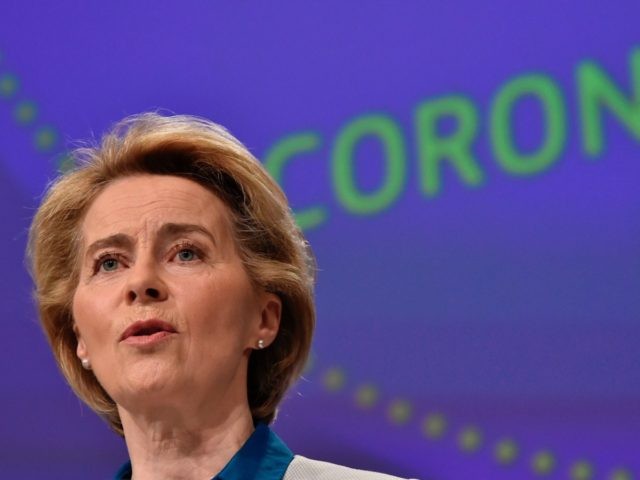The United Kingdom would be on the hook for a major bill to subsidise the European Union’s coronavirus crisis spending, should the government agree to another extension to the Brexit transition period.
The British government will reportedly reject the calls to extend the Brexit deadline again amidst the Chinese coronavirus crisis, as it fears the EU would demand the UK make “massive” payments into the bloc’s pandemic response.
“It’s clear the EU will be increasing their budget, and bringing in all kinds of packages to deal with the consequences of the COVID-19 crisis. Paying into this new budget when we are no a longer member state and without a say is clearly not in the national interest,” a negotiations insider told The Telegraph.
“We need to spend money on our own needs in our own way,” the source added.
European Union member states will agree on a budget for the period 2021 to 2027, which European Commission President Ursula von der Leyen said would need to “be completely different than how normally European budgets work”.
In light of the economic fallout from the coronavirus crisis, the bloc is considering a front-loaded budget, that would pay out more grants in the first few years of the period.
French Economist: EU Risks 'Suicide', Could Collapse over #Coronavirus https://t.co/3ADWAeT3fE
— Breitbart London (@BreitbartLondon) April 13, 2020
Last week, the British government said that it would “simply say no” if asked by the European Union to extend the Brexit transition period.
The country’s chief negotiator, David Frost, said: “Extending would simply prolong negotiations, create even more uncertainty, leave us liable to pay more to the EU in future and keep us bound by evolving EU laws at a time when we need to control our own affairs. In short, it is not in the UK’s interest to extend.”
EU diplomatic sources in the negotiation process have also said that any economic impact from a failure to secure a post-Brexit trade deal would be mitigated by the fallout caused by the coronavirus pandemic.
“Any disruption to trade if a deal is not negotiated by the end of the year will be buried… Negative effects of the exit from the single market are now cushioned in the wider context of the corona crisis,” a source said.
Farage: We Mustn’t Accept a Brexit Delay Because of Coronavirus https://t.co/XxNjqiLUyE
— Breitbart London (@BreitbartLondon) April 15, 2020
Follow Kurt on Twitter at @KurtZindulka

COMMENTS
Please let us know if you're having issues with commenting.